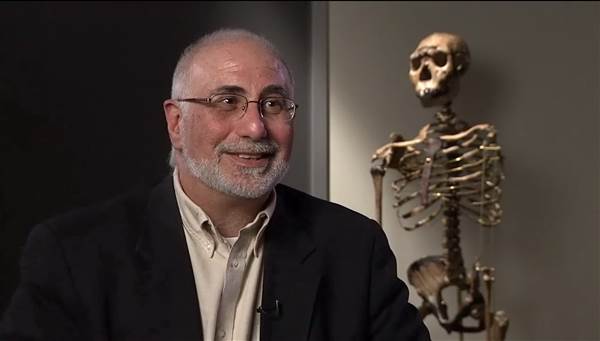
By Mashaun D. Simon (NBC BLK)
Is science racist?
Jonathan Marks, a University of North Carolina – Charlotte anthropologist, has written a book to answer that very question.
Marks’ “Is Science Racist?” is described as a wise and witty essay that explores the legacy of scientific racism. For Marks, the authority science has been assigned as it pertains to race has been misappropriated.
“Biological anthropology has an unusual burden as the custodians of the scientific narratives of who we are and where we come from,” Marks told NBC News. “Those narratives have cultural power, and everyone feels like they own them.”
While activists and diversity advocates have argued for years that race is a social construct, Marks defines race differently. He admits that diversity advocacy is not his particular area of interest.
“I prefer to say that race is a bio-cultural construct, since there is obviously some biology/ancestry there,” he adds. “The problem lies in thinking that there’s nothing else to it.
For him, it’s about the science. “’Is Science Racist?’ focuses more specifically on the content of science and the toleration of scientific racism within the scientific community. Science, he writes, is racist when racist ideas by scientists are not challenged and allowed to thrive.
“If you espouse creationist ideas in science, you are branded as an ideologue, as a close-minded pseudo-scientist who is unable to adopt a modern perspective, and who consequently has no place in the community of scholars,” Marks states in the book. “But if you espouse racist ideas in science, that’s not quite so bad. People might look at you a little askance, but as a racist you can coexist in science alongside them, which you couldn’t do if you were a creationist.”
Since the mid-1990s, Marks has been writing about human biological diversity. His book “Human Biodiversity” was widely read and widely quoted, he said. So much so that members of the alt-right co-opted the phrase. Today Marks is saddened by that fact and “a little embarrassed” by the title, he admits. But it has not stopped him from doing the work. He suggests that whites in the United States have some realities to accept.
“It’s an important lesson for most whites in the United States to learn that their lives are in fact quite different from the lives of US Blacks,” he said. “Starting with a 3-4 year difference in life expectancy.”
Contrary to popular belief, biology and genetics are a minor component of race. Racial categories, Marks states, transcend genetics.
“An East African is more closely related to a West Asian than to a West African; geographic distance is the main determinant of similarity in the human species. In order to make these formal categories we have to create cultural rules like the “one-drop of blood rule” in defiance of natural patterns in our species,” he adds. “The category ‘Hispanic’ also shows that biology is a distraction. It is a linguistic category if your ancestors spoke Spanish. But those ancestors could be from Mexico and look Native American; or from the Philippines, and look Asian; or from Dominica and look African; or from Spain and look European. Yet most Americans nevertheless consider it to be a racial category.”
But in the wake of instances, like Charlottesville, how do we get people to learn or even listen when they refuse? Marks admits that most of modern society today is not interested in the science of things.
“Or in scholarship generally, but are only interested in rationalizing their feelings about things,” he said. “If people aren’t listening, or wanting to learn, then all you can do is talk louder, and eventually you are baying at the moon. I honestly don’t know how to communicate with them. I don’t think anybody does. My ambition is to put the scholarship out there, so people who are interested can access it.”
Other than that, he said, there is not much more one can do. Nazis, he said, don’t read; they burn books.
“I think it is important to know what science says, because science is a voice of authority in the modern world,” he added. “Once we acknowledge that race is not a fact of nature or biology, but a fact of nature/culture — real as lived experience in a society of inequality, but unreal as genetics — then the conversation can turn towards equality (a political status) rather than being focused on difference (a biological status).”



